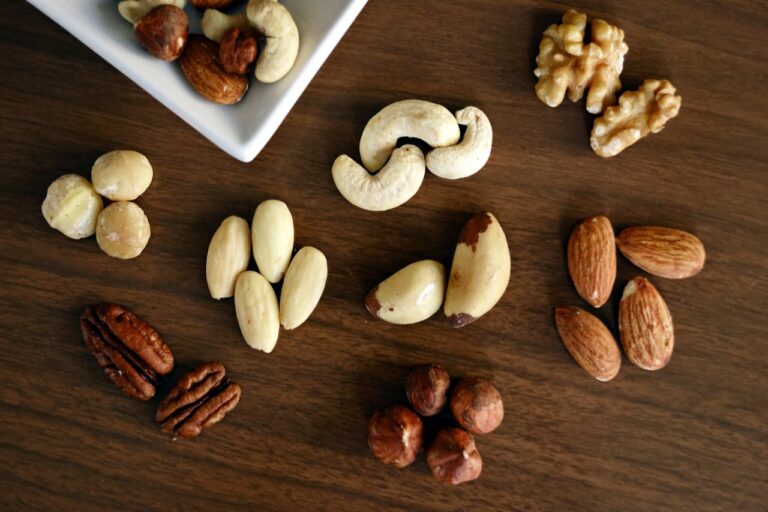Feeling distracted or struggling to remember important details? What you eat could be the key to unlocking better focus and sharper memory. Research shows that certain foods can enhance brain function, improve concentration, and support overall mental well-being. Whether you’re tackling a work project, studying for exams, or simply looking to stay sharp, fueling your body with the right nutrients can make a significant difference.
This article dives into the world of brain-boosting foods, exploring their benefits and how to include them in your daily diet. From omega-3-rich fish to antioxidant-packed berries, you’ll learn how to optimize your meals to fuel your mind.
Why Food Matters for Brain Health
Your brain is a high-performance machine, and like any machine, it needs the right fuel to function at its best. The brain uses about 20% of the body’s daily calorie intake, meaning the quality of those calories directly impacts cognitive performance. Nutrients like antioxidants, healthy fats, vitamins, and minerals protect the brain from oxidative stress, maintain healthy connections between neurons, and even improve brain plasticity.
Now that we understand the importance of nutrition for brain health, let’s explore the specific foods that can help you stay sharp and focused.
Top Brain-Boosting Foods
1. Fatty Fish
Why it helps: Fatty fish like salmon, mackerel, and sardines are rich in omega-3 fatty acids, which are essential for brain health. Omega-3s play a critical role in building cell membranes and improving the structure of neurons. Studies show they are linked to reduced brain aging and a lower risk of Alzheimer’s disease.
How to include it in your diet: Grill or bake salmon for dinner, add mackerel to your salads or enjoy canned sardines on whole-grain crackers for a quick snack.
2. Blueberries
Why it helps: Blueberries are packed with antioxidants, including flavonoids, which improve memory and delay age-related cognitive decline. Antioxidants help combat oxidative stress, a major factor in brain aging and neurodegenerative diseases.
How to include it in your diet: Mix fresh or frozen blueberries into smoothies, oatmeal, or yogurt. They also make a great snack on their own.
3. Nuts and Seeds
Why it helps: Nuts and seeds, particularly walnuts, almonds, and flaxseeds, are excellent sources of healthy fats, vitamin E, and antioxidants. Vitamin E has been shown to prevent cognitive decline as we age, while the omega-3s in flaxseeds support overall brain function.
How to include it in your diet: Sprinkle flaxseeds on your cereal or yogurt, include a handful of nuts in your snack rotation, or use nut butter as a spread on whole-grain toast.
4. Leafy Greens
Why it helps: Vegetables like spinach, kale, and Swiss chard are nutritional powerhouses loaded with nutrients like vitamin K, lutein, and folate, all of which are linked to improved brain health. They help slow cognitive decline and support memory.
How to include it in your diet: Add leafy greens to salads, blend them into smoothies, or sauté them as a side dish.
5. Whole Grains
Why it helps: Whole grains, such as oats, quinoa, and brown rice, provide steady energy to the brain by releasing glucose slowly into the bloodstream. This ensures you stay focused and energized throughout the day.
How to include it in your diet: Enjoy a bowl of oatmeal for breakfast, substitute white rice with quinoa at dinner, or snack on whole-grain popcorn.
6. Dark Chocolate
Why it helps: Dark chocolate contains caffeine and flavonoids, which improve focus, memory, and mood. It also has antioxidant properties that protect the brain from oxidative stress.
How to include it in your diet: Opt for dark chocolate with at least 70% cocoa. Enjoy a square or two as a dessert or mix cacao powder into your smoothie.
7. Eggs
Why it helps: Eggs are an excellent source of choline, a nutrient that supports the production of acetylcholine, a neurotransmitter involved in mood and memory function. They’re also rich in B vitamins, which are essential for brain health.
How to include it in your diet: Prepare scrambled eggs, boiled eggs, or omelets for breakfast. Add hard-boiled eggs to salads for an easy protein boost.
8. Turmeric
Why it helps: Turmeric contains curcumin, a powerful antioxidant and anti-inflammatory compound. Curcumin can cross the blood-brain barrier and has been shown to help in the growth of new brain cells, reduce inflammation, and improve memory.
How to include it in your diet: Add turmeric to soups, smoothies, or rice dishes. Pair it with black pepper to increase its absorption.
9. Green Tea
Why it helps: Green tea contains both caffeine and the amino acid L-theanine. This combination boosts alertness and focus while promoting relaxation by reducing stress levels.
How to include it in your diet: Replace your afternoon coffee with a cup of green tea. Experiment with matcha for an even greater concentration of antioxidants.
Signs You May Need to Adjust Your Diet
While incorporating these brain-boosting foods is a great start, it’s important to pay attention to how your body responds. If you’re experiencing frequent brain fog, low energy, or difficulty concentrating, it could be a sign you need more nutrient-dense meals. Balance your brain-friendly diet with regular physical activity and sufficient hydration for best results.
Taking the Next Step Towards Cognitive Wellness
The saying “You are what you eat” holds, especially for your brain. By incorporating these superfoods into your diet, you can take control of your focus, memory, and overall cognitive health. Be consistent and intentional; lasting benefits won’t appear overnight, but the long-term advantages are worth the effort.
Feeling inspired to take action? Start with small changes—maybe a handful of nuts today or a green tea swap tomorrow. Your brain will thank you.





















0 Comments